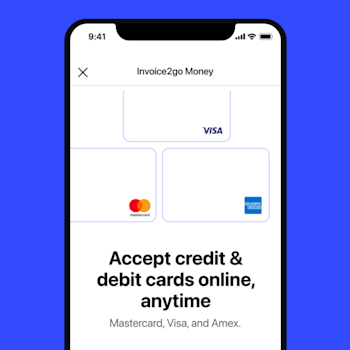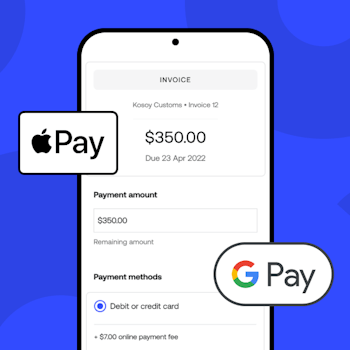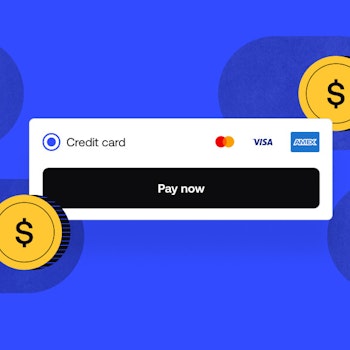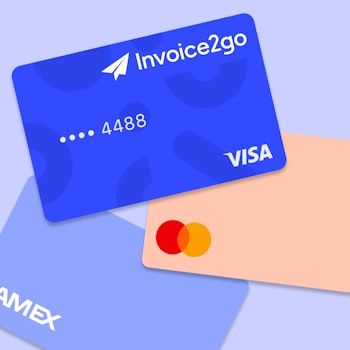
How to respond to subconscious bias as a minority entrepreneur
Entrepreneurship and business ownership are dreams that transcend gender, sexual orientation, race, religion, ability, and socioeconomic background. But the reality is some entrepreneurs face challenges that others do not.
If you have one or more marginalized identities, you contend with all entrepreneurship's stresses — like business planning, cash flow, time management, and hiring. You also likely face additional struggles gaining access to funding, business education, and networks to grow.
You may deal with the subconscious bias of customers, investors, and other partners. While conscious bias refers to stereotyping based on race, gender, sexuality, ethnicity, ability, or other characteristics, subconscious bias – which often manifests as microaggressions – describes prejudice and stereotyping people don’t necessarily realize.
Subconscious bias is something everyone is susceptible to and often contradicts conscious beliefs. And because of the subtle or unintentional nature of this type of discrimination, it can be trickier to handle and just as harmful as overt prejudice. Over time, these sights can take an enormous toll, decreasing well-being and even impairing problem-solving and work performance.
As part of our mission at Invoice2go to create a global and inclusive business community, we aim to empower business owners of all backgrounds with tips and tools to succeed.
Here are 3 expert strategies to navigate subconscious bias and respond to it with strength and grace – even if emotions are running high.
1. Decide if and when you want to respond to subconscious bias
If you just finished a presentation and someone seems overly surprised that you’re just so articulate, or you notice someone continually staring at you holding hands with your partner at an event, you might feel angry, self-conscious, or confused. You may want to call the person out or find yourself questioning if you’re just being too sensitive.
If you feel you’ve just encountered a microaggression, you’re not obligated to say or do anything. You’re busy running your business and perhaps don’t have the energy to engage. But what if you do want to speak up? Explaining the impact of hurtful words or behaviors can improve professional relationships. However, it can also lead to hostile situations.
Author and professor Kevin Nadal lists five questions in his Guide to Responding to Microaggressions to help you decide whether or not to speak up.
- Could responding risk my physical safety?
- Will the person become defensive, leading to an argument?
- How will this affect my relationship with this person?
- Will I regret not saying something?
- Does not responding convey that I accept this behavior or statement?
If you know the person well, consider their character and how much you value the relationship. Do you feel you could have a productive conversation? Will it create resentment in yourself if you don’t say anything?
You may find it helpful to take space and think about what you want to say. You may choose to talk to this person in the moment while the incident is fresh or ask them to chat at a time and place you feel more comfortable.
3. Use these scripts to disarm the microaggression
To address a microaggression, you can disarm it by stopping or deflecting it by expressing disagreement, challenging what was said or done, or pointing out its harmful impact.”
Diane Goodman, a consultant focused on diversity, equity, inclusion, and social justice, has compiled a list of statements you can use to do precisely this. She suggests memorizing the following three statements in particular:
Ask for clarification: “Could you say more about what you mean by that?”
Separate intention from impact: “I know you didn’t realize this, but when you __________ (comment/behavior), it was hurtful/offensive because___________. Instead you could___________ (different language or behavior.)”
Share your own process: “I noticed that you ___________ (comment/behavior). I used to do/say that too, but then I learned____________.”
Since these statements are designed to not make the aggressor feel attacked, the odds are more likely that they will listen to what you say and adjust their behavior.
4. Decide if you want to maintain the relationship and surround yourself with a supportive community
Some relationships are worth working through struggles to become stronger. However, if a client or business partner is close-minded, combative, or unwilling to hear you out, it may be time to let that relationship go. It’s up to you to make that choice and decide what’s best for you and your business.
If a professional relationship is toxic, it’s crucial to have an abundance mindset and not be afraid to let go. Seek to connect with those who uplift you professionally and move away from relationships that don’t serve you. You are the boss and have power over who you work with.
Be intentional and define your ideal clients and dream partnerships. Strategically set goals to build your business band and establish relationships with those that support your vision.
Take advantage of community and growing business networks specifically for minority entrepreneurs. For example, check out Minority Business Enterprise Certification, which provides access to free business education, networking, and mentorship programs. There’s evidence that developing a sense of pride and belonging can protect your mental health and help you feel less alone after experiencing prejudice. Be with those you trust who can validate your experience.
In addition, there are more and more funding opportunities that support business owners like you. If you’re looking for support to get grant funding, check out our free grant boot camp mini-course that’s packed with valuable information to help you succeed.
Whether you respond to a microaggression or not, dealing with the subconscious bias of others can be emotionally draining. Try to channel your energy toward spending time with loved ones and staying focused on your strategic goals rather than dwelling on those who hurt you.
How have you dealt with prejudice as an entrepreneur or business owner? Know that you’re not alone. Join our Go Getters Community to share your story and connect with others. 50% of our greater Invoice2go community identifies as women and/or BIPOC. We’re here to support you on your path to success.
Related Articles

How to accept credit card payments on Invoice2go in 3 simple steps

Accept payments online via Apple Pay and Google Pay

Must-not-miss write-offs as you wrap up 2022 year-end finances

5 ways accepting credit and debit card payments helps your business stay resilient

4 easy ways to increase cash flow today

What is Small Business Saturday and why is it important?
The features and surprising benefits of a well-designed packing slip
